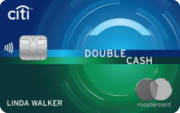The content is accurate at the time of publication and is subject to change.
Credit card issuers are offering ever-more tantalizing rewards credit cards on an almost daily basis. But according to a recently-released study conducted by marketing research firm Colloquy, each American household earns an average amount of $622 worth of credit card rewards each year, $205 of which go unclaimed. The reasons why so many people are not cashing in on the rewards they rightfully earned are varied. Perhaps they simply don’t care about them or they plumb forgot. In some cases, restrictions may inhibit consumers from cashing in their rewards points or miles.
This is why it is important to be mindful when it comes to choosing and using a rewards card. While it may make sense at some point to obtain a rewards card to use for big-ticket purchases, an unexpected setback can prevent you from paying off the balance on the card. As a result, any interest that accrues on the outstanding balance will likely offset much of the value of any rewards you earned – especially because the cards with the best benefits usually have higher-than-average APR’s. Which is why it is wise to think before you charge, especially if you intend to deliberately stack charges onto a rewards card with the intention of capitalizing on the perks. Here are some other things to bear in mind regarding rewards credit cards:
Read, read, read.
Most people don’t take the time to sit down and really gain a firm understanding of the terms of their credit card account. Rewards cards can potentially be even more confusing than non-rewards cards, because some issuers do things like rotate the types of purchases that are eligible to earn multiple points and others may cap the overall amount of rewards you can earn. In order to use the card to your best advantage, it’s essential to understand exactly how it works.
Also make sure that you have a handle on the redemption policy. Some programs offer bonus perks for waiting to redeem cash back points until they reach a specific amount. Others may have time limits or expiration dates that it is important to be aware of.
Shop around.
In order to maximize your reward point earnings, you typically need to go through the online shopping portal of the credit card to reach retailers. However, be aware that you may not always be getting offered the best price or deal on the item you are looking for by using this method. That is why it is important to comparison shop by searching the web for the product you are looking for because you may very well find it offered at a less expensive price somewhere else.
Likewise, you should be mindful of how you spend your reward points when it comes time to redeem them. It may effectively be cheaper to purchase the item elsewhere than squander a large chunk of your points in order to get it through the rewards program. You will usually always have the option of redeeming your rewards for gift cards, which can come in handy to use as presents.
Don’t spend to earn.
Finally, never overspend in order to meet some sort of goal as outlined by your rewards program because it simply isn’t worth it. Don’t allow bonuses or special promotions to encourage you to make impulsive purchases simply to take advantage of them, because chances are you will regret it later. Rewards programs should provide you with perks and bonuses for sticking to your usual good spending habits, not entice you into cultivating bad ones.





